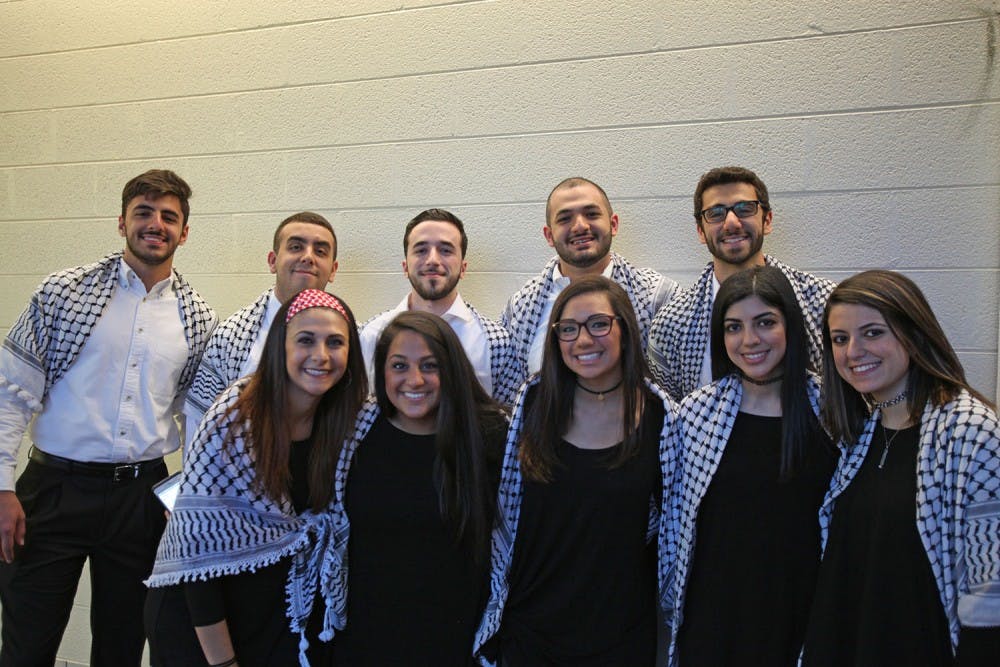Music, poetry and dance unique to Palestinian culture were on display Thursday for UNC students at Palestinian Culture Night.
The event was held by the UNC Students for Justice in Palestine at Hanes Hall. The Palestinian-American performers shared stories of their own experiences with the adversity their culture faces both in the United States and abroad.
“There’s this quote I’ve often heard and it’s something along the lines of, ‘every day above ground is blessed,’” Tariq Luthun, an Emmy-award winning poet, told the audience during the event. “I find that reading that, the resilience of our people, for a variety of black and brown bodies and our livelihoods, to be able to find solace in that, but I also want to push against that because I think it should be more than survival. I think there’s nothing wrong with us seeking to thrive in this world.”
Thursday marked Land Day, a day dedicated to a 1976 protest held by the Arabs of Palestine that resulted in the Israeli army killing six of the unarmed protesters. Zaid Khatib, a member of UNC Students for Justice in Palestine, said this added extra meaning to the event for him and the organization.
“Palestinian culture is especially relevant to us, especially on this day, Land Day, because it’s sort of a symbol of resistance in itself,” Khatib said.
Luthun and spoken-word artist Zaina Alsous presented their works of poetry, covering topics like marriage, past oppression in their native country, adjusting to life as an outsider and living in a country with a hostile view of the Middle East.
Sijal Nasralla, a UNC graduate and multi-instrumentalist, performed his own music. He told the audience his songs were inspired by events in his life, such as being in Jerusalem with his cousins and asking people in Syria about revolution.
“I like to think that people can come to an event like this and see that Palestine isn’t either a backwards or depraved place of culture or depraved place of identity,” Nasralla said. “Palestine was in fact a wealthy, illustrious area with so much history and such a sophisticated place.”
Khatib said that he hoped the people who attended the event left with an idea that there is a place for Palestinian culture and people, particularly in Chapel Hill. He said that with the negative connotation the media and the current administration often greet them with, this is crucial to ensuring Palestinian-Americans can in turn feel comfortable having their own place.




